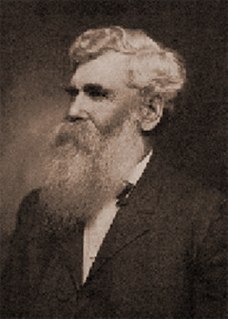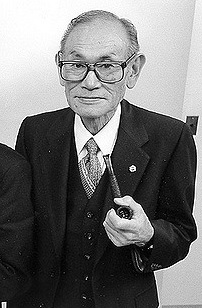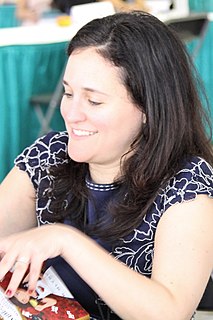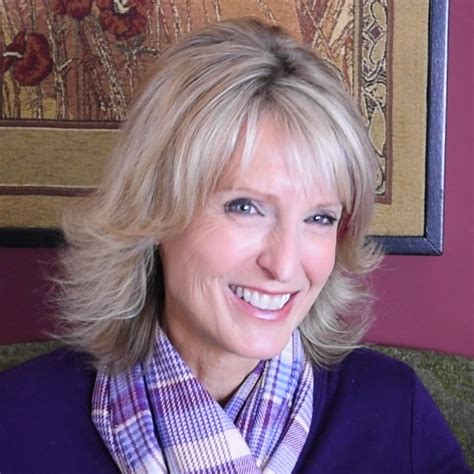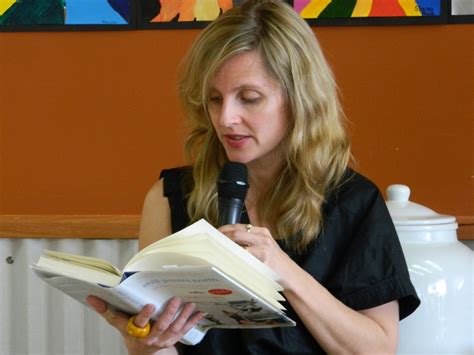A Quote by Sarah Dessen
What is family? They were the people who claimed you. In good, in bad, in parts or in whole, they were the ones who showed up, who stayed in there, regardless. It wasn't just about blood relations or shared chromosomes, but something wider, bigger. Cora was right - we had many families over time. Our family of origion, the family we created, as well as the gorups you moved thorugh while all of this was happening: friends, lovers, sometimes even strangers. None of them were perfect, and we couldn't expect them to be. You couldn't make any one person your world. The trick was to take what each could give you and build a world from it.
Quote Topics
About
Any
Bad
Bigger
Blood
Blood Relation
Build
Chromosomes
Claimed
Could
Created
Each
Even
Expect
Families
Family
Friends
Give
Good
Had
Happening
Just
Lovers
Make
Many
Moved
None
Our
Our Family
Our World
Over
Parts
People
Perfect
Person
Regardless
Relations
Right
Shared
Something
Sometimes
Stayed
Strangers
Take
Them
Time
Trick
Up
Well
Were
While
Whole
Wider
World
Your
Related Quotes
They would always be a family, but if she'd learned anything in the past few weeks it was that a family wasn't a static thing. There were always changes going on. Like with continents, sometimes the changes were invisible and underground, and sometimes they were explosive and deadly. The trick was to keep your balance. You couldn't control the direction of your family any more than you could stop the continental shelf from breaking apart. All you could do was hold on for the ride.
Oh no, that’s for you. Presents make people happy. The Simi wants you to be happy. (Simi) Thank you, Simi. (Gallagher) No need to thank me. See, that’s what families do. They take care of each other. (Simi) I no longer have a family. I had to give them up. (Gallagher) Of course you have a family. Everyone has family. I’m your family. Akri your family. Even that smelly old goddess is your family. She’s that creepy old aunt who comes around but nobody likes her so they make fun of her when she’s gone. (Simi)
I was the fifth child in a family of six, five boys and one girl. Bless that poor girl. We were very poor; it was the 30s. We survived off of the food and the little work that my father could get working on the roads or whatever the WPA provided. We were always in line to get food. The survival of our family really depended on the survival of the other black families in that community. We had that village aspect about us, that African sense about us. We always shared what we had with each other. We were able to make it because there was really a total family, a village.
When you had the World Trade Center go, people were put into planes that were friends, family, girlfriends, and they were put into planes and they were sent back, for the most part, to Saudi Arabia. I would be very, very firm with families. Frankly, that will make people think because they may not care much about their lives, but they do care, believe it or not, about their families' lives.
My family was in two businesses - they were in the textile business, and they were in the candy business. The conversations around the dinner table were all about the factory floor and how many machines were running and what was happening in the business. I grew up very engaged in manufacturing and as part of a family business.
And now I was seeing that there was something really cool about that family. All of them. They were just...real. And who were we? There was something spinning wickedly out of control inside this house. It was like seeing inside the Baker's world had opened up windows into our own, and the view was not a pretty one. Where had all this stuff come from? And why hadn't I ever seen it before.
I wasn't in a position that some other memoirists are, dealing with families who fed them meth, or kidnapped them, or did something that would make the writer not want to see that family again. I wanted to see my family. I wanted to celebrate them. I was proud of who we were, in the wilderness, floating down rapids or hiking over glaciers, and everywhere else.
In Israel, it always meant - and a lot of that is still true - there was only one kind of man you could be, there were no alternatives, no options. If you were from a good family, you were supposed to be a successful soldier at 18 and be strong, and prepared to protect your wife and family, or family and children, and be prepared to die for your country.
Me and my sisters were taught that if our eyes worked and our legs worked, we were beautiful. We had so many kids in our family that if we all got in front of the mirror and were ashamed of browns and golds and yellows and whites, and we believed what society told us - that the darker people were less attractive and the lighter ones were prettier - we would have had sibling murders. My family, being half-rural and half-military, just came from a different place.






